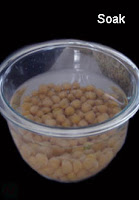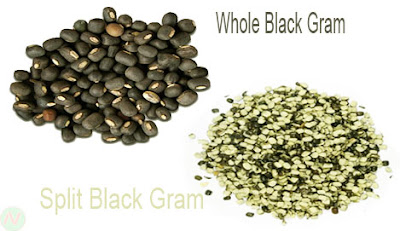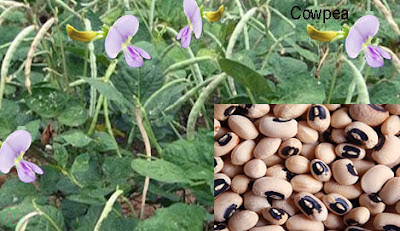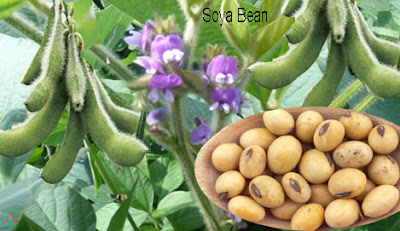Pulses / Dhal Name Meaning & Image | Necessary Vocabulary
1. Pulses
Pulses / pʌlsɪz / (পাল্ছিজ্) n {Also plural} 1. [pulses, sometimes called a “grain legume”, is an annual crop, yielding from one to twelve seeds of variable size, shape, and color within a pod. Pulses are used as food for humans and other animals. The term “pulses”, as used by the United Nations’ Food and Agricultural Organization (FAO), is reserved for grain crops harvested solely for the dry seed. Pulses provide protein, complex carbohydrates, dietary fiber, vitamins, and dietary minerals] (<গোটা>ডাল; কলাই; ডালজাতীয় যে কোনো শস্য): Pulses include peas, lentils, and chickpeas
2. Pulse /
pʌls / (পালছ্)
n [the regular beat of blood as it is sent around the body by the heart, which can
be felt at the wrist or side of the neck] (নাড়ির বা ধমনীর স্পন্দন):
Pulses Related Necessary Vocabulary Notes
 |
| Pulse |
Pulses Related Necessary Vocabulary Notes
Ø Grain / greɪn / (গ্রেইন) n [the small hard seeds of food plants, especially a plant like a grass such as wheat, rice; a single seed of such a plant] (শস্যকণা; দানা): a few grains of rice
Ø Legume / ˈlegjuːm / (ˈলেগিউম্) n [a legume is any plant, that has seeds in long pods, or the fruit or seed of such a plant. Peas, beans, lentils, soybeans, etc. are legumes] (শিম বা মটর জাতিয় বীজ এর গাছ):
Ø Yield / jiːld / (ঈল্ড্) v {Pt. Pp. yielded / jiːldɪd / (ঈল্ডিড্)} [to produce or provide Sth, for example, a profit, result or crop] (উৎপাদন করা বা উৎপন্ন হওয়া): Favorable weather yielded a good crop.
 |
| Pod |
Ø Pod / pɑːd / (পাঃড্) n [a long, narrow, flat case of some plant, such as beans and peas, which contains the seeds and usually has a thick skin] (<মটর, শিম ইত্যাদির লম্বা> বীজাধার বা খোসা): a pea pod
Ø Term / tɜːrm / (টা্র্ম) n [a word or expression used as the name of something, especially one connected with a particular type of language] (কোনো ধারণা ব্যক্ত করার জন্য ব্যবহৃত শব্দ বা পদ): Old man is a slang term for ‘father’. A technical/scientific, etc. term
Ø Reserve / rɪˈzɜːrv / (রিˈজা্র্ভ্) v [to ask for a seat, table, room, etc. to be available for you or Sb else at a future time] (<কোনোকিছু> সংরক্ষণ করা): This seat is reserved for a special guest.
Ø Harvest / ˈhɑːrvɪst / (ˈহাঃর্ভিস্ট্) v {Pt. Pp. harvested / ˈhɑːrvɪstɪd / (ˈহার্ভিস্টিড্)} [to pick and gather crops or to catch fish, animals, or plants to eat] (ফসল কাটা বা ঘড়ে তোলা): The vegetables are ready to harvest in September.
Ø Solely / ˈsoʊlli / (ˈছৌল্লি) adj [only and not involving anyone or anything else] (এককভাবে; শুধু; কেবল): He was motivated solely by self-interest.
Ø Provide / prəˈvaɪd / (প্রএˈভাইড্) v [to give someone something that they need] (সরবারহ করা; যোগানো): This booklet provides useful information about local services.
<SYN> Supply
Ø Complex / kəmˈpleks / (কএমˈপ্লেক্ছ্) adj [involving a lot of different but related parts] (যৌগ; মিশ্রিত): a complex carbohydrate.
Ø Fibre / ˈfaɪbər / (ˈপাইবএর্) n {US fiber} [a substance of such as fruit, vegetables, that helps to keep a person healthy by keeping the bowels working and moving other food quickly through the body] (আঁশ; তন্তু): He has been advised to increase his fiber intake.
Ø Mineral / ˈmɪnərəl / (ˈমিনএরএল্) n [a valuable or useful chemical substance which is formed naturally in the ground] (খনিজ-পদার্থ): A chemical that body needs to stay healthy.
Dhal
Dhal / dɑːl / (ডাঃল্) n [dal or dhal are dried pulses. Which has been cooked or split, The outer husk is usually stripped off; dhal that has not been husked is described as skin. The word dhal is also used to name the thick stew prepared from pulses, an important part of Indian, Bangladeshi, Nepali, Sri Lankan, and Pakistani cuisine. Dal or pulses are a staple curry eaten with boiled rice and flatbread throughout India, Pakistan, Bangladesh, and Nepal, where Dal Bhatt is the staple food for much of the population. Dhal is a ready source of proteins for a balanced diet containing no meat.] (<রান্না করা যেকোনো>ডাল):
 |
| Split |
Ø Split / splɪt / (স্প্লিট্) n {Pt. Pp. Split} [to divide into two or more parts, especially along a particular line] (বিশেষত লম্বালম্বিভাবে ভাগ হওয়া বা করা; <মসুর, মুগ, মটর ডাল>ভাঙা): His trousers split when he tried to jump the fence.
<SYN> Divide
Ø Outer / ˈaʊtər / (ˈআউটএর্) adj [on the outside of Sth] (বাইরের বা বাইরের জন্য): the outer layer of the skin.
<SYN> External
 |
| Husk |
Ø Husk / hʌsk / (হাছক্) n [the dry outer covering of nuts, some seeds, especially of grain] (<ডালের> খোসা/ তুস): Brown rice has not had the husks removed.
<VERB> Husk / hʌsk / (হাছক্) v [to remove the husks from grain, seeds, nuts, etc.] (খোসা ছাড়ান):
<VERB> Husk / hʌsk / (হাছক্) v [to remove the husks from grain, seeds, nuts, etc.] (খোসা ছাড়ান):
Ø Strip / strɪp / (স্ট্রিপ্) v {Pt. Pp. stripped / strɪpt / (স্টিপ্ট্)} [to remove a layer from Sth, especially so that it is completely exposed] (<আবরণ> খসানো/ তুলে ফেলা): Because of the pollution, the trees are almost completely stripped of bark.
Ø Stew / stuː / (স্টূ) n [a type of food consisting usually of meat or fish and vegetables cooked slowly in a small amount of liquid] (<মাছ, মাংস বা সব্জির>গারো ঝোল তরকারি):
Ø Cuisine / kwɪˈziːn / (ক্যুইজীন্) n [a style of cooking] (রান্নার পদ্ধতি বিশেষ): We sampled the Italian cuisine.
Ø Staple / ˈsteɪpl / (স্টেইপ্ল্) adj [the main product or part of something] (প্রধান পন্যদ্রব্য): The staple crop is rice.
Lentil
Lentil / ˈlentl / (ˈলেনট্ল্) n [this is an edible pulse. It is a bushy annual plant of the legume family, known for its lens-shaped small green, orange or brown seeds. Its colors range from yellow to red-orange to green, brown and black.] (মসুর<ডাল>; মসুরি): red/brown lentils
Ø Edible / ˈedəl / (ˈএডএবল্) adj [safe or suitable to be eaten] (ভোজ্য): The fishes were old but still looked edible.
 |
| Bushy |
Ø Bushy / bʊʃi / (বুশি) adj [(of plants) growing thickly, with a lot of leaves] (ঝোপঝাড়ময়): bushy spring plants
Ø Lens-shaped / lenz- ʃeɪpt / (লেনজ্-শেইপট্) n [] (<চোখের> মণি আকৃতির):
Ø Range / reɪndʒ / (রেইনজ্) v [to vary between two particular amounts, sizes, etc. including others among them] (দুই প্রান্তসীমার মধ্যে উঠানামা করা):
Mung bean
/ ˈmuːŋ ˌbiːn /
(ˈমূঙ্ ˌবীন্) n {Also mung;
moong; green gram whole} [an
annual vine with yellow flowers and fuzzy brown pods, mainly cultivated in East
Asia, Southeast Asia, and Indian subcontinent
for its edible usually green or yellow seeds, used as an ingredient in
both savory and sweet dishes] (মুগ ডাল):
Ø Cultivate / ˈkʌltɪveɪt / (ˈকালটিভেইট্) v [to prepare and use the land for growing plants or crops] (<জমি> চাষ করা; আবাদ করা): The land around here has never been cultivated
<SYN> Grow
<NOUN> Cultivation / ˌkʌltɪˈveɪʃn / (ˌকালটিˈভেইশ্ন্) n [the preparation and use of land for growing plants or crops] (চাষ; আবাদ): Fertile land that is under cultivation.
<NOUN> Cultivation / ˌkʌltɪˈveɪʃn / (ˌকালটিˈভেইশ্ন্) n [the preparation and use of land for growing plants or crops] (চাষ; আবাদ): Fertile land that is under cultivation.
 |
| Ingredient |
Ø Ingredient / ɪnˈgriːdiənt / (ইনˈগ্রীডিএন্ট্) n {<SYN> Element} [one of the things from which Sth is made, especially one of the foods that are used together to make a particular dish] (<রান্নার> উপাদান/ উপকরণ): Mix all the ingredients in a bowl.
Ø Savory / ˈseɪvəri / (ˈছেইভএরি) adj [having a taste that is salty or spicy and not sweet] (নোনতা স্বাদের): savory/dumplings snacks
Ø Dish / dɪʃ / (ডিশ্) n [Food prepared in a particular way as part of a meal] (খাবার টেবিলে পরিবেশনকৃত খাদ্য): My favorite dish is rice with chicken and mashed potato.
Pigeon Pea
Pigeon pea / ˈpɪdʒɪn piː / (ˈপিজি্ন্ পী) n [this is a perennial legume Family, It is consumed on a large scale mainly in South Asia. They are very drought-resistant, so can be grown in areas with less than 650mm of rainfall. It has in high demand at lucrative prices.] (অড়হর ডাল):
Pigeon / ˈpɪdʒən
/ (ˈপিজি্ন্) n [a fat, usually grey and white bird
with short legs, that is often seen in towns sitting on buildings in large
groups, and is sometimes eaten as food] (কবুতর বা পায়রা বা কপোত বা পারাবত):
 |
| Pigeon |
Ø Perennial / pəˈreniəl / (পএˈরেনিএল্) n [any plant that lives for more than two years] (দুই বছরের বেশি জীবৎকালীন): Roses and geraniums are perennials, flowering year after year.
Ø Family / ˈfæməli / (ˈফ্যামএলি) n [(biological group) a large group of related types of animal or plant] (প্রাণী, উদ্ভিদ প্রভৃতির দল বা পরিবারবর্গ): The lion is a member of the cat family
Ø Scale / skeɪl / (স্কেইল) n 1. [the size or extent of something, especially when compared with something else](কোনো বস্তুর আকার বা পরিমান): On a global scale, 77% of energy is created from fossil fuels.
Ø Resist / rɪˈzɪst / (রিˈজিছট্) v [to not be harmed or damaged by Sth] (প্রতিরোধ করা; <ক্ষতি> রোধ করা): The new hybrid crops are much better at resisting disease.
<ADJ> Resistant / rɪˈzɪstənt / (রিˈজিছটএনট্) n {~ (to Sth)} [not affected by Sth; able to resist Sth] (প্রতিরোধক্ষমতাসম্পন্ন): Insects are becoming resistant to insecticides.
<ADJ> Resistant / rɪˈzɪstənt / (রিˈজিছটএনট্) n {~ (to Sth)} [not affected by Sth; able to resist Sth] (প্রতিরোধক্ষমতাসম্পন্ন): Insects are becoming resistant to insecticides.
Ø Rainfall / ˈreɪnfɔːl / (ˈরেইনফোল্) n [the total amount of rain that falls in a particular amount of time] (বৃষ্টিপাত/ বৃষ্টিপাতের পরিমাণ): The average annual rainfall in this region: 740mm.
Ø Lucrative / ˈluːkrətɪv / (ˈলূক্রএটিভ্) adj [producing a large amount of money; making a large profit] (লোভজনক; আর্থিকভাবে লোভনীয়): The merger proved to be very lucrative for both companies.
Black Gram
Black gram / blæk græm / (ব্ল্যাক্ গ্র্যাম্) n [black gram is originated in India, where it has been in cultivation from ancient times and is one of the most highly prized pulses of India and Pakistan.
Black gram is popular in India, largely used to make dal from whole or split, husked seeds.] (মাষকলাই):
Ø Ancient / ˈeɪnʃənt / (ˈএইনশএন্ট্) adj [belonging to a period of history that is thousands of years in the past] (প্রাচীন): People have lived in this valley since ancient times.
Chickpea
Chickpea / ˈtʃɪkpiː / (ˈচিকপী) n {Also Bengal gram; garbanzo
bean} [the chickpea is a legume of the family also known as gram, Bengal gram, or garbanzo bean. Its hard round seed-like light brown peas is high in protein. Its plant grows to 20-50 cm long and has small, feathery leaves on either side of the stem. Chickpeas are a type of pulse, with one seedpod containing two or three seeds. It is eaten as a dhal called split chickpeas.
Chickpeas are usually rapidly boiled for 10 minutes and then simmered for a longer period. Dried chickpeas need a long cooking time (1-2 hours) but will easily fall apart when cooked longer. If soaked for 12-24 hours before use, cooking time can be shortened by around 30 minutes. Chickpeas can also be pressure cooked. Mature chickpeas can be cooked and eaten cold in salads, cooked in stews, ground into gram flour, also known as chickpea flour, and used frequently in Indian Subcontinent cuisine.] (বুট; চানা; ছোলা):
Chick / tʃɪk
/ (চিক্) n [a baby
bird, especially a baby chicken] (মুরগির
ছান বা বাচ্চা):
 |
| Chick |
Ø Feathery / ˈfeðəri / (ˈফেদএরি) adj [light, soft or delicate, like feathers] (পালকতুল্য হালকা ও নরম): feathery leaves/snowflakes
 |
| Sprout |
Ø Sprout / spraʊt / (স্প্রাউট্) v [(of plants or seeds) to produce new leaves or buds; to start to grow] (অঙ্কুরিত; হওয়া; পল্লবিত হওয়া): The seeds will sprout in a few days.
Ø Stem / stem / (স্টেম্) n [the main long thin part of a plant above the ground from which the leaves or flowers grow] (ডাটা<বোঁটা, পাতা, ফুল ও ফলের যে অংশ কাণ্ডের সঙ্গে যুক্ত থাকে>): a tall plant with branching stems
 |
| Split chickpeas |
Ø Split chickpeas / splɪt ˈtʃɪkpiːz / (স্প্লিট্ ˈচিকপীজ্) n [chickpea is hulled and split to make dhal] (বুট ডাল):
Ø Boil / bɔɪl / (বয়ল্) v [to reach, or cause something to reach, the temperature at which a liquid starts to turn into a gas] (তরল পদার্থ উত্তপ্ত করে ফুটানো; সিদ্ধ করা): The water was bubbling and boiling away.
Ø Simmer / ˈsɪmər / (ˈছিমএর্) v [to cook something with liquid in it, at a temperature slightly below boiling] (হাল্কা ফুটানো অবস্থা): Simmer the sauce gently for 10 minutes.
 |
| Soak |
Ø Soak / soʊk / (ছৌক্) v {Pt. Pp. soaked / soʊkt / (ছৌক্ট্)} [to put Sth in liquid for a time so that it becomes completely wet; or (of liquid) to be absorbed in large amounts] (পানিতে চুবিয়ে রাখা; কোনোকিছু ভিজানো): Leave the chickpeas to soak for 30 minutes.
<SYN> Immerse
Ø Shorten / ˈʃɔːrtn / (ˈশোরটন্) v {Pt. Pp. Shortened} [to make Sth shorter; to become shorter] (ছোট করা/ হওয়া; খর্ব করা): I have asked him to shorten my grey trousers.
<ANT> Lengthen
Ø Grind / graɪnd / (গ্রাইনড্) v {Pt. Pp. Ground} [to crush Sth into very small pieces or powder by pressing between two hard surface or using a special machine] (ঘষে চূর্ণ বা গুড়া করা): They grind the grain into flour between two large stones. To grind coffee/corn
 |
| Gram Flour |
Ø Gram flour / ˈgræm ˈflaʊər / (ˈগ্র্যাম্ ˈফ্লাউএর) n {also Besan; Chickpea flour} [flour made from chickpeas] (বেসন): Gram flour has a slightly nutty taste.
Ø Frequent / ˈfriːkwənt / (ˈফ্রীকুএন্ট্) adj [happening or doing Sth often; common] (প্রায়শ সংঘটিত; পৌনঃপুনিক; নিয়মিত): There is a frequent bus service into the center of town.
<ADV> Frequently / ˈfriːkwəntli / (ˈফ্রীকুএনট্লি) adv [often] (ঘনঘন; প্রায়ই; বারংবার; পুনঃপুন): I see him quite frequently.
<ADV> Frequently / ˈfriːkwəntli / (ˈফ্রীকুএনট্লি) adv [often] (ঘনঘন; প্রায়ই; বারংবার; পুনঃপুন): I see him quite frequently.
Cowpea
Cowpea / ˈkaʊpiː / (ˈকাউপী) n {Also black-eyed beans} [cowpea is a type of bean that is white with a black spot and is grown for pulses. They are one of the most important food legume crops in the semiarid tropics covering Asia, Africa, Southern Europe, and Central and South America. A drought-tolerant and warm-weather crop, cowpeas are well-adapted to the drier regions of the tropics, where other food legumes do not perform well.] (বিউলি ডাল): Cowpeas are an important crop in many African countries.
Ø Semi-arid / ˈsemi-ˈærɪd / (ˈছেমি-ˈএ্যারিড্) adj [(of land or climate) describes an area or climate with little rain but not completely dry] (অর্ধ-অনুর্বর): arid and semi-arid deserts
Pea
Pea / piː / (পী) n [pea is most commonly the small spherical seed or the seed-pod of the pod fruit. Each pod contains several peas. Peapods are botanical fruits since they contain seeds and are developed from the ovary of a (pea) flower. It is a cool-season crop grown in many parts of the world; a pea is a most commonly green, occasionally golden yellow, or infrequently purple pod-shaped vegetable, widely grown as a cool-season vegetable crop. They do not thrive in the summer heat of warmer temperate and lowland tropical climates but do grow well in cooler, high altitudes, and tropical areas. ] (মটর; মটরশুঁটি): frozen/dried peas
Split peas / ˌsplɪt ˈpiːz /
(স্প্লিট-পীজ্) n [a dried pea that
has been separated into its two halves, used especially in soups or as a vegetable] (মটর ডাল):
 |
| Split Peas |
Ø Spherical / ˈsferɪkl / (ˈস্ফেরিকল্) adj [shaped like a ball] (গোলাকার): The Earth is not perfectly spherical.
<SYN> Round
Ø Botanical / bəˈtænɪkl / (বএˈট্যানিক্ল্) adj [involving or relating to plants or the study of plants] (উদ্ভিদসম্বন্ধীয়): Several new botanical species have been discovered in the last year.
 |
| Ovary |
Ø Ovary / ˈoʊvəri / (ˈওভএরি) n [the part of a plant that produces seeds or eggs] (<উদ্ভিদের> বীজকোষ):
Ø Thrive / θraɪv / (থ্রাইভ্) v {Pt. Pp. Thrived} [to grow, develop or be successful, strong, healthy, etc.] (বলিষ্ঠ ও স্বাস্থ্যবান হওয়া; সমৃদ্ধি লাভ করা): The fungus thrives in warm, moist conditions.
<SYN> Flourish
Ø Climate / ˈklaɪmət / (ˈক্লাইমএট্) n [the general weather conditions usually found in a particular place] (জলবায়ু; জলবায়ু-অঞ্চল): The harsh climate of the Arctic regions.
Ø Do / du / (ডু) v [used to give extra force to the main verb] (ক্রিয়াকে জোর দেবার জন্য ব্যবহৃত হয়): Do shut up, Raju, and get on with your home task.
Ø Altitude / ˈæltɪtuːd / (ˈএ্যালটিটূড্) n [a place that is high above sea level] (সমুদ্রপৃষ্ঠ থেকে অনেক উঁচু কোনো জায়গা): Mountain climbers use oxygen when they reach higher altitudes.
Grass Pea
Grass pea / græs piː / (গ্র্যাছ্ পী) n [a legume, commonly grown for human feeding and livestock feed in Asia and East Africa. It is a particularly important crop in areas that are prone to drought and famine and is thought of as an ‘insurance crop’ as it produces reliable yields when all other crops fail. Grass pea contains a toxic component that may cause paralysis in humans and livestock if consumed for a prolonged period. It is also known as chickling pea, Indian pea, white pea, and khesari (in Bangladesh and India)] (খেসারি<ডাল>):
Grass / ɡræs
/ (গ্র্যাস্) n [a
low, green plant with narrow green leaves and stems that grows naturally over a lot of the earth's surface, that are eaten by cattle, sheep, goats, etc.] (ঘাস):
 |
| Grass |
 |
| Livestock |
Ø Livestock / ˈlaɪvstɑːk / (ˈলাইভ্স্টাঃক্) n [animals, such as cattle, sheep, fishes, and birds, such as chickens, kept on a farm] (গৃহপালিত পশু):
Ø Prone / proʊn / (প্রৌন্) adj {~ to Sth} [likely to suffer from Sth or show a particular negative characteristic] (প্রবণ; উন্মুখ): He was prone to depressions even as a teenager.
Ø Famine / ˈfæmɪn / (ˈফ্যামিন্) n [when there is not enough food for a great number of people, causing illness and death, or a particular period when this happens] (দুর্ভিক্ষ; চরম খাদ্যভাব): There were reports of refugees dying of famine.
Ø Reliable / rɪˈlaɪəbl / (রিˈলাইএব্ল্) adj [that can be trusted to do Sth well; that you can rely on] (নির্ভরযোগ্য; বিশ্বাসযোগ্য): We are looking for someone who is reliable and hard-working.
Ø Component / kəmˈpoʊnənt / (কএমˈপৌনএন্ট্) n [one of several parts of which Sth is made] (উপাদান; অংশ): Fresh fruit and vegetables are in an essential component of a healthy diet.
<SYN> Element
Ø Prolonged / prəˈlɔːŋd / (প্রএˈলোঙ্ড্) adj [continuing for a long time] (দীর্ঘসময়ব্যাপী; প্রলম্বিত): Prolonged use of the drug is known to have harmful side-effects.
<SYN> Lengthy
Moth /
mɑːθ / (মাঃথ্) n [a flying insect with four wings that is similar
to a butterfly, usually flies at night, and is attracted to bright night] (দেয়ালী পোকা):
<SYN> Lengthy
Moth Beans
Moth beans
/ mɑːθ
ˈbiːnz / (মাঃথ্
ˈবীনয্) n [a drought-resistant legume, commonly grown in arid
and semi-arid regions of India, having hairy foliage and small yellow flowers
followed by cylindrical pods; consumed especially in India for food and forage
and as a soil conditioner] (মাথ্
বীনয <ডাল>): |
| Moth |
Kidney Beans
Kidney
beans / ˈkɪdni
ˌbiːnz / (ˈকিড্নি
ˌবীনয্) n {Also red
bean} [a type of small, dark red bean with a
curved shaped like a kidney that is usually dried before it is sold and then
left in water before cooking] (কিড্নি বিনয <ডাল>):
 |
| Kidney |
Kidney / ˈkɪdni
/ (ˈকিড্নি) n [each
of a pair of small organs in the body of mammals, birds, and reptiles, which
take away waste matter from the blood to produce urine] (মূত্রগ্রন্থি; বৃক্ক):
Soya Bean
Soya bean / ˈsɔɪ biːn / (ˈছয়ই বীন্) n [a type of legume bean, grown especially in Asia and North America, which is used as a food for people and animals protein] (সয়াবিন):
Pulses / Dhal Name Meaning & Image
Noted From Wikipedia, Google Image, Oxford & Cambridge Dictionary























No comments